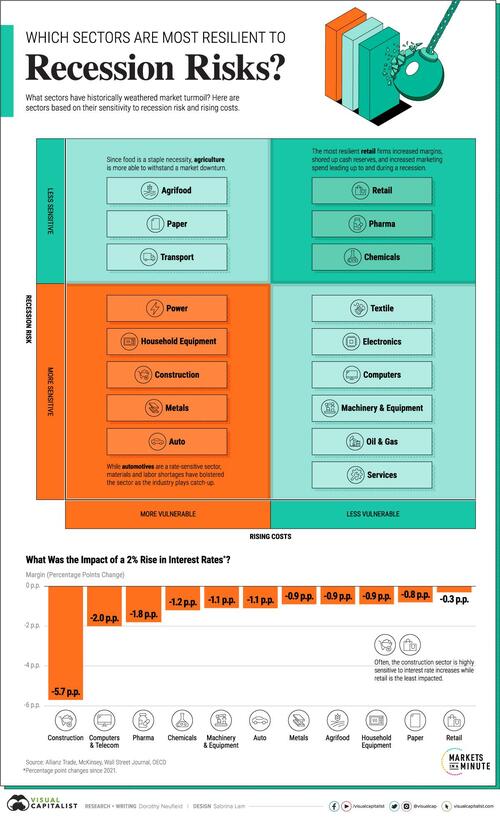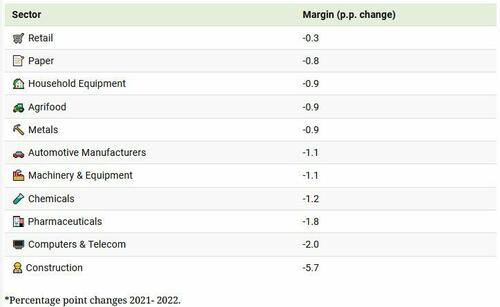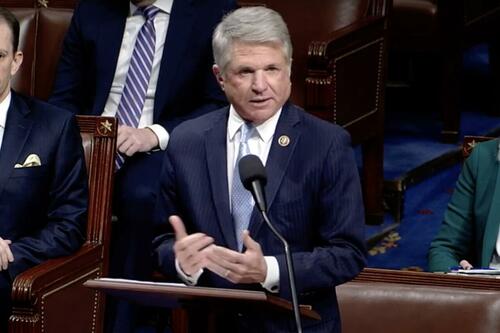Trump Is Not Immune From Lawsuits Over Jan. 6: Federal Court
Authored by Zachary Stieber via The Epoch Times (emphasis ours),
Former President Donald Trump is not immune to lawsuits over the Jan. 6, 2021, breach of the U.S. Capitol, a federal appeals court ruled on Dec. 1.
President Trump has not proven that he has presidential immunity from suits regarding his actions leading up to and on Jan. 6, the court said.
The ruling was largely based on the determination that President Trump’s campaign for another term was not an official presidential act, so did not fall under presidential immunity.
“In arguing that he is entitled to official-act immunity in the cases before us, President Trump does not dispute that he engaged in his alleged actions up to and on January 6 in his capacity as a candidate. But he thinks that does not matter. Rather, in his view, a president’s speech on matters of public concern is invariably an official function, and he was engaged in that function when he spoke at the January 6 rally and in the leadup to that day. We cannot accept that rationale,” U.S. Circuit Judge Sri Srinivasan, appointed under former President Barack Obama, wrote in the ruling.
“While presidents are often exercising official responsibilities when they speak on matters of public concern, that is not always the case. When a sitting president running for re-election speaks in a campaign ad or in accepting his political party’s nomination at the party convention, he typically speaks on matters of public concern. Yet he does so in an unofficial, private capacity as office-seeker, not an official capacity as office-holder. And actions taken in an unofficial capacity cannot qualify for official-act immunity,” Judge Srinivasan added.
Judge Gregory Katsas, appointed by President Trump, concurred, while Judge Judith Rogers, appointed under President Bill Clinton, concurred in part.
The panel ruled on an appeal lodged by President Trump after U.S. District Court Judge Amit Mehta, appointed under President Obama, ruled in 2022 that President Trump was not protected by presidential immunity for his speech on Jan. 6.
“To deny a president immunity from civil damages is no small step,” Judge Mehta wrote at the time. “The court well understands the gravity of its decision. But the alleged facts of this case are without precedent, and the court believes that its decision is consistent with the purposes behind such immunity.”
The ruling is not final, Judge Srinivasan emphasized.
The rejection of President Trump’s appeal “is necessarily tied to the need to assume the truth of the plaintiffs’ factual allegations at this point in the proceedings,” he wrote. “President Trump has not had a chance to counter those allegations with facts of his own. When these cases move forward in the district court, he must be afforded the opportunity to develop his own facts on the immunity question if he desires to show that he took the actions alleged in the complaints in his official capacity as President rather than in his unofficial capacity as a candidate. At the appropriate time, he can move for summary judgment on his claim of official-act immunity.”
The Dec. 1 decision “is not necessarily even the final word on the issue of presidential immunity,” he added, so “we of course express no view on the ultimate merits of the claims against President Trump.”
Lawyers for President Trump and the other parties did not immediately respond to requests for comment.
Positions
The decision came nearly a year after the parties argued in front of the appeals court panel. The appeals court normally issues decisions in about a third of the time.
The ruling came after President Trump was sued by Democrats and law enforcement officers over his actions on Jan. 6.
Democrats in the U.S. House of Representatives, for instance, accused President Trump of conspiring to prevent them from their duty in approving the 2020 electoral results because of his speech, in which the president called on supporters to march to the Capitol.
President Trump, who is the Republican frontrunner for 2024, has argued that the speech consisted of “political statements and discourse by a sitting president during his term of office” and should thus be covered by presidential immunity.
The immunity protects presidents from civil lawsuits over official acts, or acts taken with the “outer perimeter” of his official responsibilities, under a 1982 Supreme Court ruling.
“In the run-up to January 6th and on the day itself, President Trump was acting well within the scope of ordinary presidential action when he engaged in open discussion and debate about the integrity of the 2020 election,” lawyers for the former president wrote in one filing.
Lawyers for the other parties had told the appeals court that Judge Mehta ruled correctly.
President Trump “was acting far beyond the “outer perimeter” of his office when he conspired to use violence and intimidation to prevent members of Congress from carrying out their constitutional duty to count Electoral College votes and certify the results of the 2020 presidential election,” they said.
Tyler Durden
Sat, 12/02/2023 – 19:50
via ZeroHedge News https://ift.tt/BT1Z0Ma Tyler Durden

















